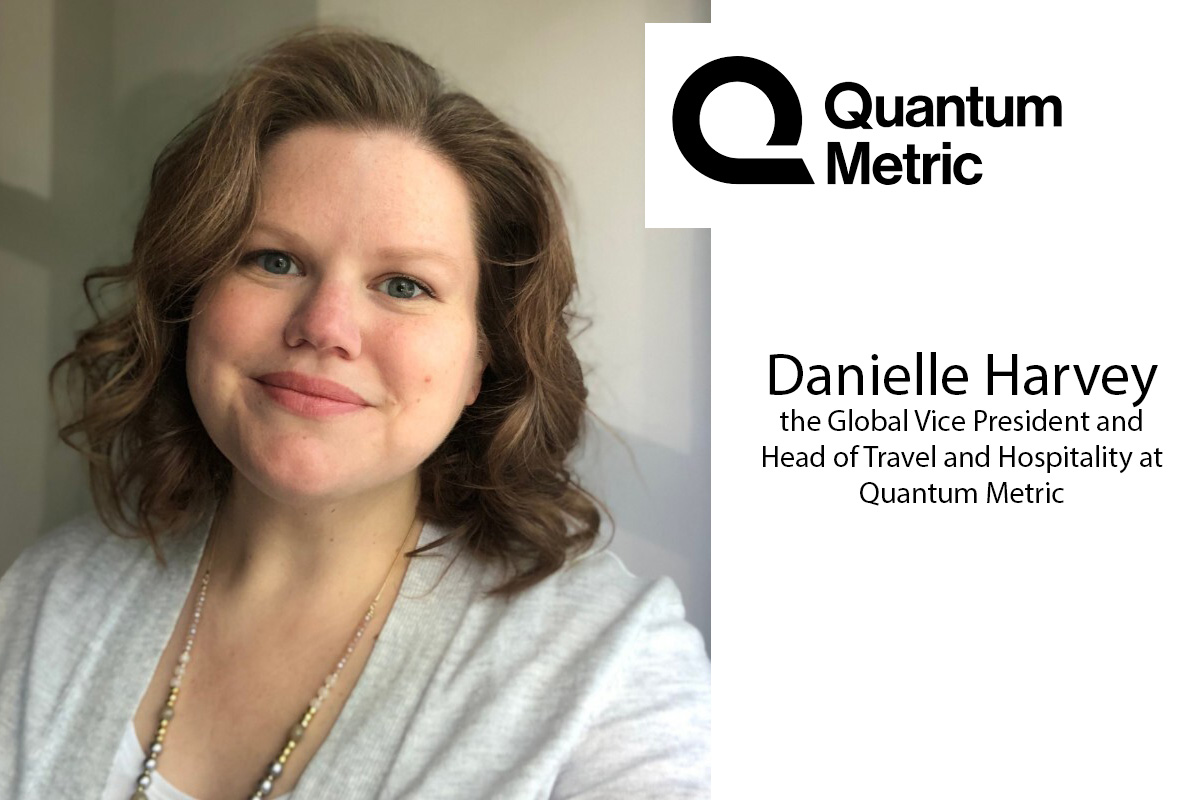
What sportsbook operators can do to better their odds with customer experience
We sat down with, Danielle Harvey, the Global Vice President and Head of Travel and Hospitality at Quantum Metric, to discuss why sportsbook operators need to level up their online presence as mobile sports betting reaches new states.
As mobile sports betting becomes legal in more states, how do you see the market evolving, and what role does Quantum Metric play in helping sportsbook operators adapt to these changes?
As more states allow online sports betting, sportsbook operators will have to better prepare for the significant increases in the size of their potential market. There will be more changes in player behavior, given there are huge differences geographically in how bets are placed, and an increase in operators competing for a share of these new markets. In response, operators should specifically pay attention to behavior around promotions, as this is the biggest point of friction amongst new users as well as the easiest way to attract new players.
Personalization will also be pivotal in bringing new users to the platform. Rather than trying to optimize the happy path for the customer, operators are starting to think about how they use data to surface the content the user wants in the way they want to access it. This will be particularly important as new markets open in different states. Sportsbook operators need to act quickly on customer signals and make changes at the market level to improve the experience for those specific customers.
As the market expands there will be more state-specific regulations that will present significant challenges for operators. From varying deposit procedures and identification verifications to betting limitations, these differences can lead to disparate user experiences within the same platform across state lines. Quantum Metric is adept at aiding operators in fine-tuning these state-specific experiences, thereby reducing the costs and impacts of compliance on player conversion rates. By comparing friction points across states, Quantum Metric equips operators with actionable insights to streamline regulatory adherence while maintaining a user-centric focus.
Given Quantum Metric’s expertise in digital analytics, can you shed light on the most common challenges sportsbook operators face in delivering a seamless online experience to their users?
Promotions are where we see the most friction, especially when looking at new users there is a lot of confusion around free bets, and we see this with bet selection on top of post-bet around cash-out. Registration is also a huge focus when opening a new market, especially during big events like the annual Super Bowl.
For returning users, the most common challenge faced by operators is personalization. We are seeing a change in behavior and a shift in the customer wanting to create their own multi-level bet and have the operator return the odds for this in a responsive way.
Understanding the sports that individual bettors, as well as new markets are mostly interested in, can be a challenge too. Sports betting sites can seem very complex to new users and helping users access the content and bets that they’re interested in will be critical. Ultimately, we are seeing operators use digital analytics to understand this and then optimize their experience accordingly. However, while personalization is still being refined, allowing the customer to configure their experience themselves could give operators the edge in the interim.
With numerous sportsbook operators entering the market, how crucial is it for brands to level up their online presence to maintain a competitive edge, and how does Quantum Metric assist in achieving this?
Having a robust online presence couldn’t be more crucial as we’re starting to see regular sports bettors have accounts with around five operators. Quantum Metric helps level up the online presence of operators and ensure they maintain a competitive edge by capturing 100% of player experiences, allowing companies to see the issues that are impacting customers and in return, actually intervene when users are experiencing this friction.
There is no time to waste when it comes to online betting as customers won’t wait for a sportsbook to resolve the issue as timely sporting events often prevent gamblers from coming back the next day to place their bets. This is particularly important when it comes to in-play betting, so having an early warning system across the entire web and app experience will be crucial for retaining customers.
Quantum Metric is well established within customer service teams of operators since we allow agents to quickly understand the issues customers face. This not only allows companies to address customer queries quicker than they could have previously, but it also allows operators to focus on the issues that are driving users to the contact center.
How does Quantum Metric’s platform provide insights into user behavior, and why is this data invaluable for sportsbook operators looking to optimize their online platforms?
Quantum Metric’s 100% capture of user sessions and the depth of capture from OOTB metrics, events and errors alone allow companies to pinpoint issues that are impacting the customer experience in real-time.
Essentially, Quantum Metric has found that teams have very little visibility of the player on apps than from other tools. With the recent introduction of data enrichment, Quantum Metric can supplement our data with data from other sources which can let operators see the issues hurting the player experience through the lens of player tiers.
Since we know customers are likely to have accounts with multiple operators and will need to complete their transaction quickly, real time alerting is incredibly valuable, and Quantum Metric is being used as an early warning system for issues that are impacting customer experience. Quantum Metric can also connect players with CS teams when they are experiencing friction on key flows like deposit, registration or bet placement by triggering the launch of live chat based on signals observed. Similarly, we can surface VOC surveys to get feedback when users encounter friction which can allow operators to marry up the qualitative and quantitative datasets.
Quantum Metric has collaborated with major sportsbook brands. Can you share some success stories or key learnings from these partnerships that highlight the importance of a robust online presence?
Quantum Metric has been hugely valuable in identifying issues with API performance, particularly where API failures prevented bets from being placed. Our 100% capture has allowed sportsbook operators to confidently and quickly resolve problems that are impacting a niche cohort of users, which would otherwise be very difficult to spot when looking at overall bet placement or continuation rates.
We’ve also been adopted by the customer service teams of the operators to revamp customer experiences and resolve issues around key flows such as registration, KYC, promotions, deposits and withdrawals. As a result, our services to sportsbook operators have seen quicker resolutions for customers and increased user retention.
One notable success story involved a long-running spinner impacting deposits in a particular region for an operator Quantum Metric works with. By pointing out the error and by making the small change, the sportsbook operator was able to increase page conversion by 5% and reduce friction by 74% on the deposits page.
One success story involves BetVictor, one of Europe’s leading online gaming companies. Through our ongoing relationship, we helped the company optimize the bet slip experience and improve its customer feedback rate by providing data-driven insights. As a result of having increased visibility into its customer data, BetVictor saw session engagement rates rise rapidly and its bet slip funnel specifically saw a 3% increase in its conversion rates.
Looking ahead, what trends or innovations do you foresee in the mobile sports betting industry, and how is Quantum Metric positioning itself to support sportsbook operators in navigating these future developments?
A trend we have seen is around operators moving towards a place where the customer can create the exact bet they have in mind and where the operator can serve responsive odds. There has also been a rise in micro-betting for mobile, where players make rapid-fire, small bets during live games on changing lines and odds. As a result, Quantum Metric is ready to support operators with real-time analytics on live games and glean insights of this high-engagement betting style compared to traditional pregame betting.










